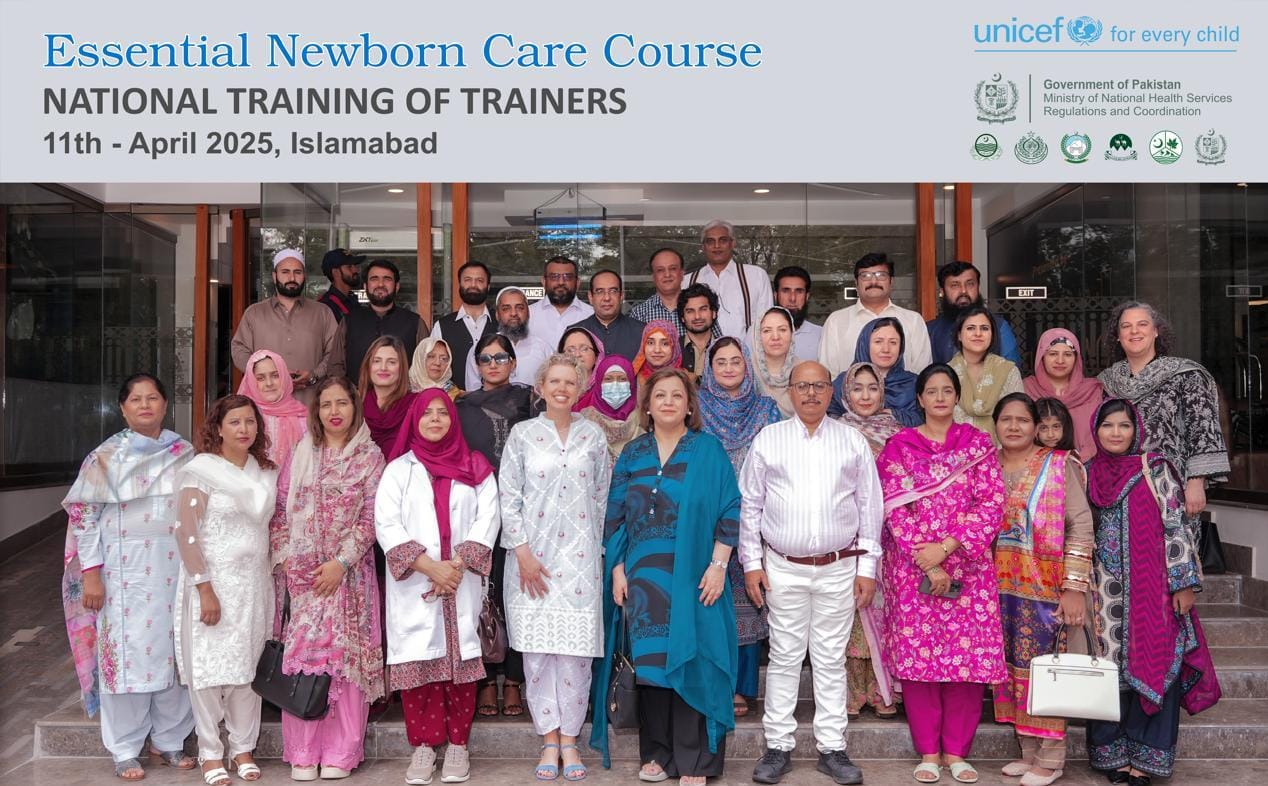
By: Shabir Hussain Jhatial
The Ministry of Health, in collaboration with UNICEF, WHO, Pakistan Paediatric Association, and MAP, has launched a 4-Day Emergency Obstetric & Neonatal Care (EmONC) Masters Training Workshop in Islamabad. This initiative aims to address Pakistan’s high maternal and neonatal mortality rates, which are among the highest globally.
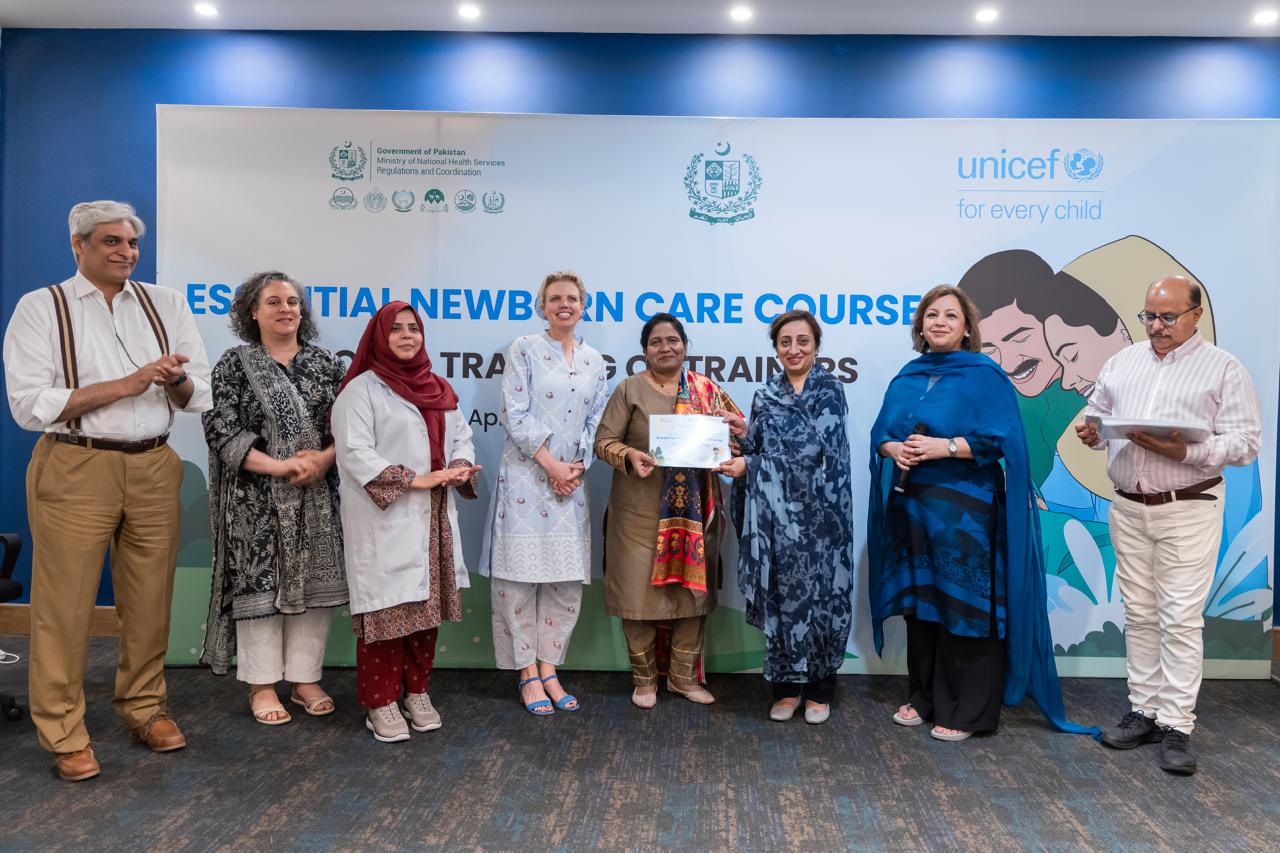
Background Statistics:-
Maternal Mortality Rate: 186/100,000, Neonatal Mortality Rate: 42/1000, Stillbirth Rate: 30 per 1,000 live births
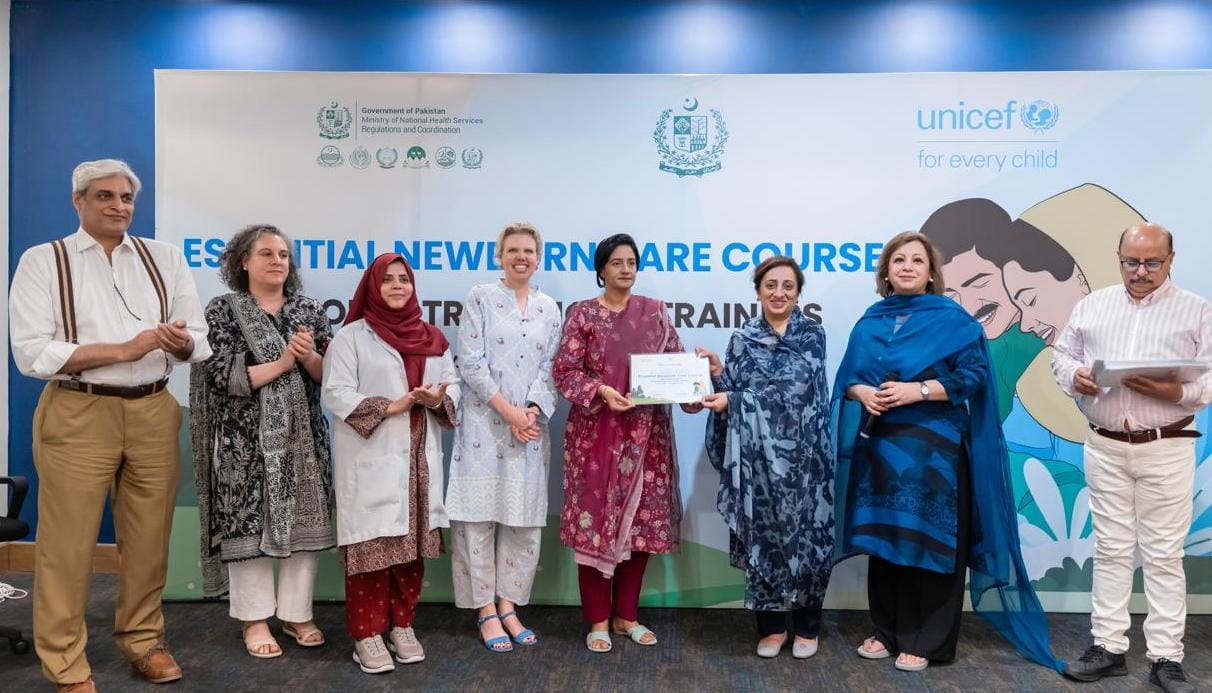
Workshop Objectives:
-Equip top leadership of gynecologists and midwives with necessary skills and knowledge to address
-Improve healthcare services and reduce mortality rates
-Integrate new Emergency Neonatal Care (ENCC) materials developed with Laerdal Global Health and the American Academy of Pediatrics while the critical training was facilitated two Midwives teachers from Norway Ms. Patricia Titulier and Ms. Julia both Midwife Instructors.
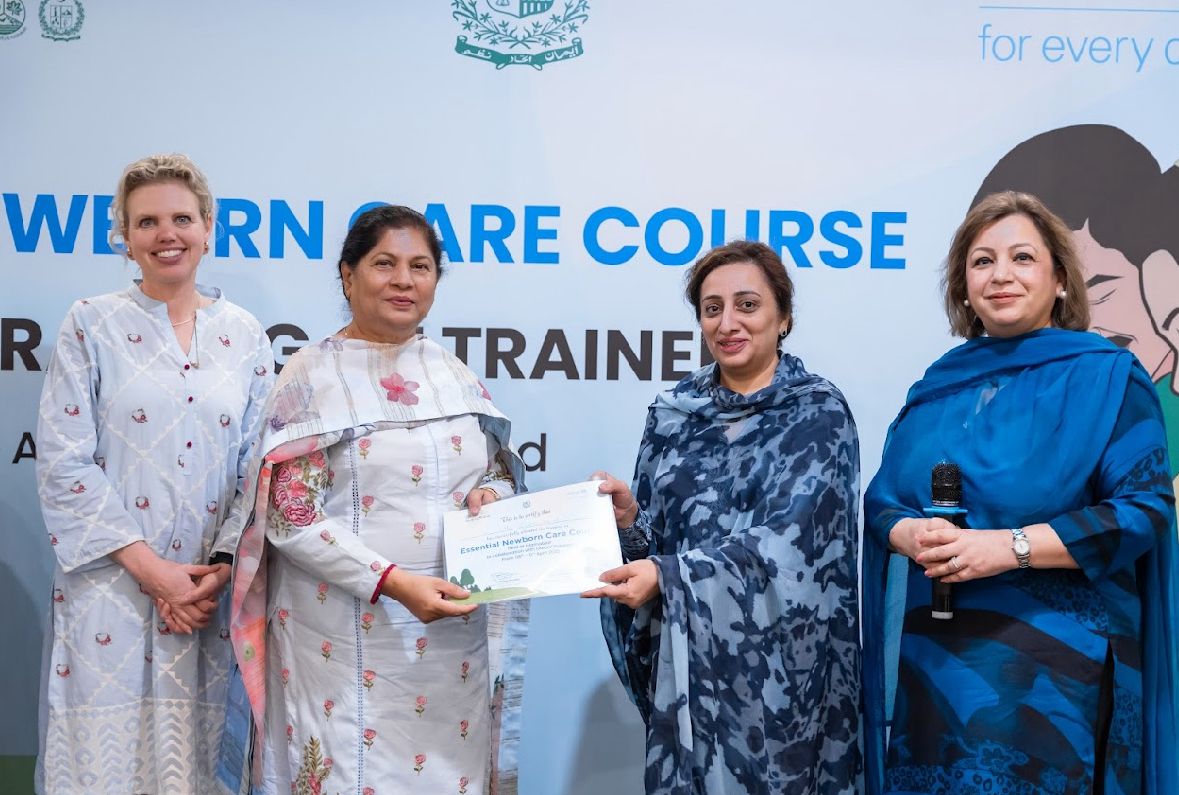
Trainer Midwives & Trainees
Beside renowned Dr. Samia Riizwan many a Guanocologists and Nurse-Midwife leaders Ms. Afshan Tasneem, Ms. Zahida(Punjab) Ms. Shabana Nazir, Naomi Ernest also attended this high tech and critical session to save lives of neonatal through timely expert hands.
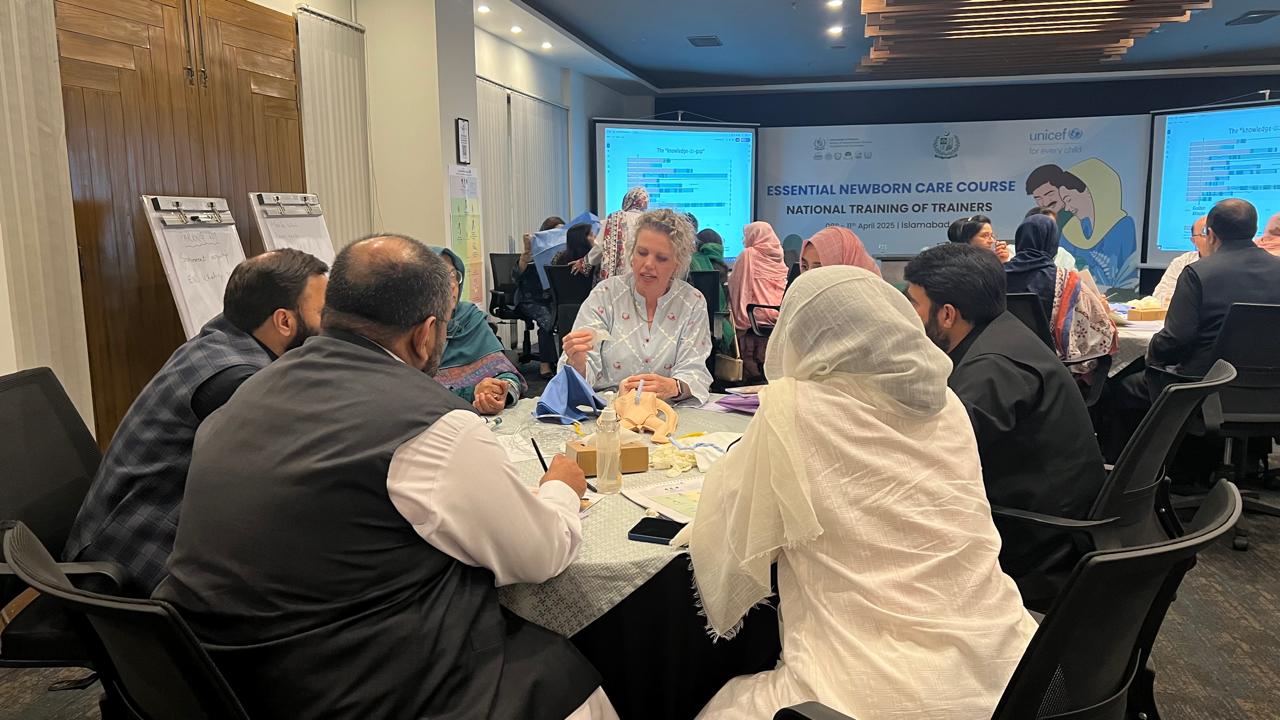
Training Components:
1 .Helping Babies Breathe (HBB): A program focusing on newborn resuscitation techniques
2 .Helping Babies Survive (HBS): A program addressing various aspects of newborn care.
Training in Global Context:
In approximately 15% of expected births worldwide result in life-threatening complications underline the importance of Emergency Obstetric & Newborn Care (EmONC) is critical to reduce maternal and neonatal mortality. The recent Zambian Study underlines:
Initiatives in Zambia
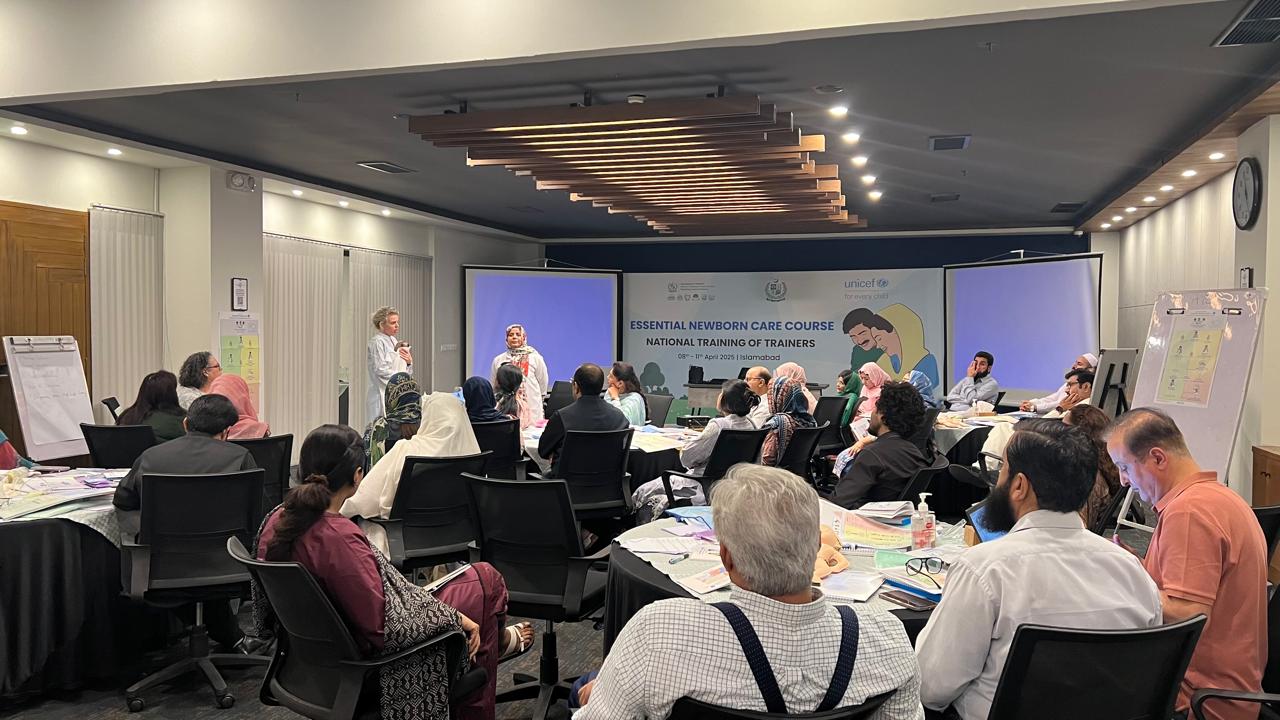
UNICEF, with support from the Sweden Government provided emergency obstetric equipment to maternity units, improving survival rates for mothers and newborns. This initiative has led to a significant reduction in maternal and perinatal deaths.
The same model Is replicated here in Pakistan to achieve intended betterment in neonatal mortality indices.
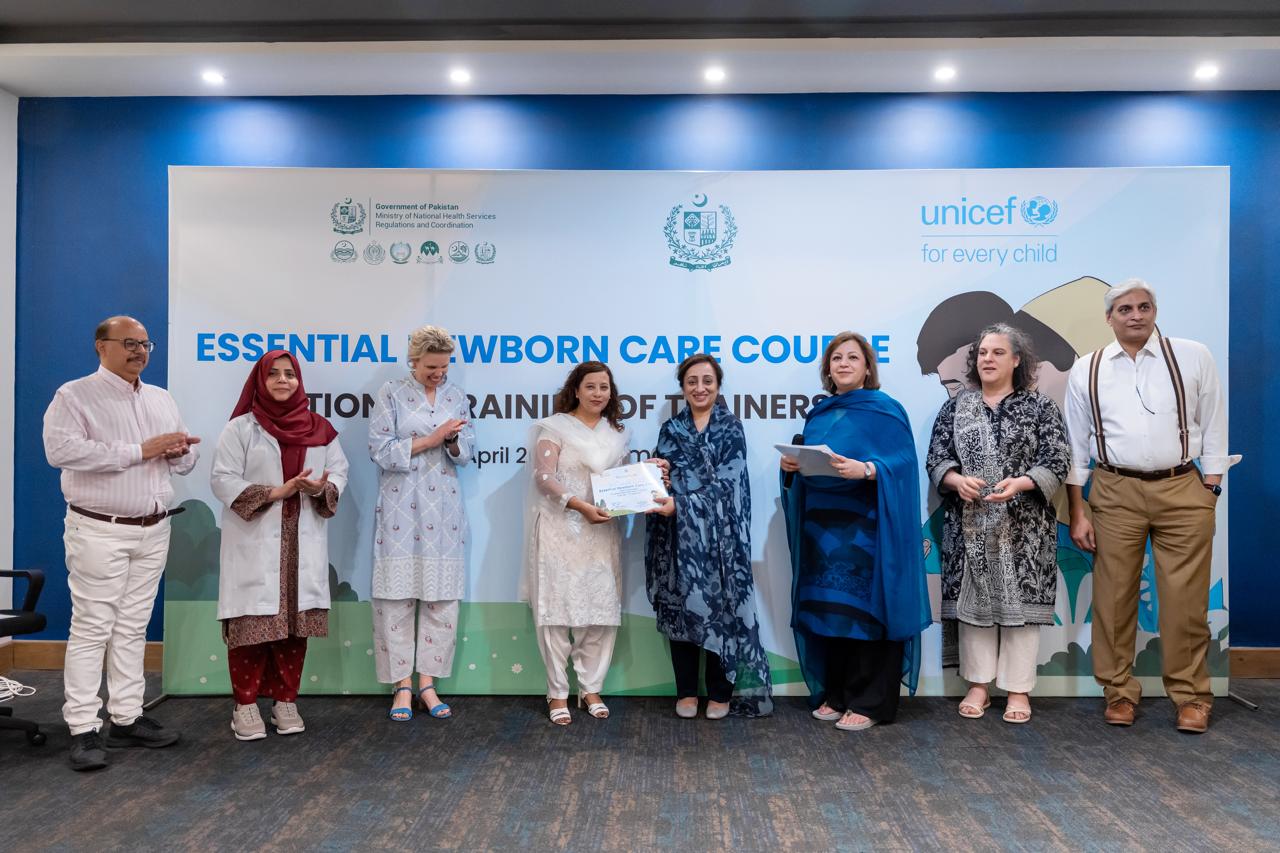

I am post RaN BScM how i attend theses types of trainings and what is registration procrss any one help me please
ReplyDeleteUpgrading from a Nursing Diploma to a BSN enhances skills, career options, and patient care quality. Australian Concept Karachi
ReplyDelete